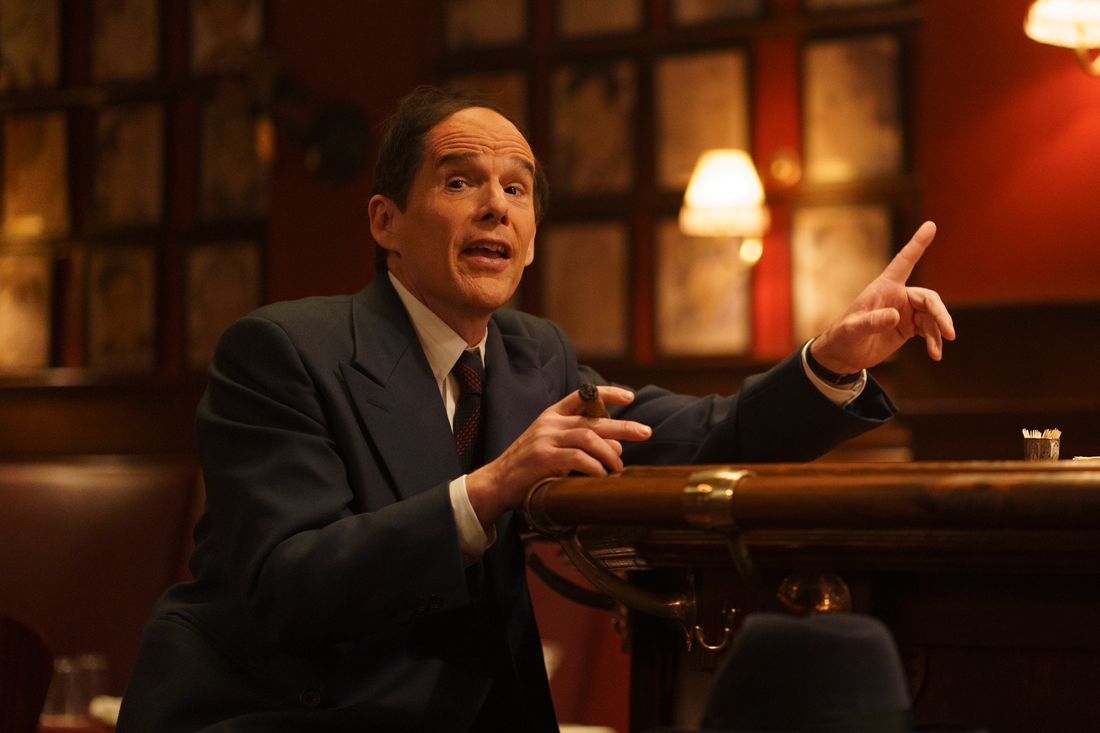
Many biographical films attempt to tell a person’s whole life story in just a couple of hours. But the new film *Blue Moon*, directed by Richard Linklater, takes a different approach: it focuses on just one night in the life of lyricist Lorenz Hart. I find this a smart choice. The more a biopic tries to cover, the more it risks feeling like *Walk Hard* – a funny movie that anyone planning a biopic should definitely watch. Embracing limitations can actually free up the genre, especially since no actor can truly *become* the person they’re portraying, no matter how much they practice or use makeup. A performance should be allowed to be just that – a performance – but with real people, we often prioritize accuracy over an actor’s interpretation. In *Blue Moon*, Ethan Hawke uses a comb-over, a New York accent, and clever camera angles to *suggest* Lorenz Hart’s appearance, but he’s clearly playing a character, not trying to mimic him perfectly. Hawke’s portrayal of Hart bounces around a famous restaurant, feeling more like a glimpse of his spirit at a crucial moment than a complete representation of the man.
It actually helps that most people know Hart’s work better than his life story. He and composer Richard Rodgers created over twenty-four musicals and many classic songs, including the famous melody of “Blue Moon.” The film focuses on March 31, 1943, a time when Richard (played by Andrew Scott) is celebrating a new partnership with Oscar Hammerstein II (Simon Delaney). Their musical, *Oklahoma!*, has just begun its incredibly successful Broadway run. However, Lorenz Hart (Richard’s former partner) has already left the celebration to start drinking, believing *Oklahoma!* is overly sweet and fake. He claims he turned down the chance to adapt the original play, *Green Grow the Lilacs*, with Richard. Richard likely would have told a different story, attributing Lorenz’s departure to his alcoholism, depression, unpredictable behavior, and dislike of sentimental themes. Regardless, Lorenz has been left behind as Richard achieves success, and he’s now coping with his disappointment by drinking bourbon and trying to pitch an ambitious musical about Marco Polo – a project that seems connected to his personal obsession with a young woman named Elizabeth Weiland (Margaret Qualley).
Watching Ethan Hawke as Lorenz is fascinating. He plays this character who’s all talk and creates this larger-than-life persona, and somehow, you can’t help but be drawn to him even when you realize he’s mostly putting on an act. It’s like Hawke is playing a *performance* within the movie – Lorenz is completely committed to appearing happy and carefree, even though his life is clearly falling apart. His big obsession with Elizabeth, who he claims is his new love, feels staged, though everyone sees it except maybe him. It’s interesting because whether Hart was truly attracted to women or not, Lorenz seems more interested in living vicariously through Elizabeth’s youth than anything else. He’ll dramatically declare his love to anyone who’ll listen, like the bartender and the pianist, but then treats Elizabeth like a close friend, practically begging her to tell him about her own love life. It’s not a flashy performance, but it’s incredibly subtle. Hawke excels at letting little cracks of despair show, even while everyone around him pretends everything is fine and plays along with the charade.
Both of Richard Linklater’s films this year explore the lives of troubled creative geniuses. While *Nouvelle Vague* playfully depicted the making of Jean-Luc Godard’s *Breathless*, *Blue Moon* takes a more somber look at the life of a talented but self-destructive playwright. The script, though occasionally a bit forced—such as a contrived scene where the playwright inspires the idea for *Stuart Little*—is ultimately rewarding. Unlike *Nouvelle Vague*, which suggests genius can appear as chaos, *Blue Moon* presents a character whose brilliance is evident, particularly in his insightful understanding of language. The film highlights the tragedy of possessing immense talent without the ability to apply it. We see him surrounded by successful peers, then left isolated, seemingly destined for a fatal end—a fate the movie subtly foreshadows through every interaction. The audience can *feel* his impending doom, making an explicit depiction unnecessary.
Read More
- All Golden Ball Locations in Yakuza Kiwami 3 & Dark Ties
- What time is the Single’s Inferno Season 5 reunion on Netflix?
- NBA 2K26 Season 5 Adds College Themed Content
- Hollywood is using “bounty hunters” to track AI companies misusing IP
- Mario Tennis Fever Review: Game, Set, Match
- Gold Rate Forecast
- 2026 Upcoming Games Release Schedule
- EUR INR PREDICTION
- Train Dreams Is an Argument Against Complicity
- A Knight Of The Seven Kingdoms Season 1 Finale Song: ‘Sixteen Tons’ Explained
2025-10-16 22:54